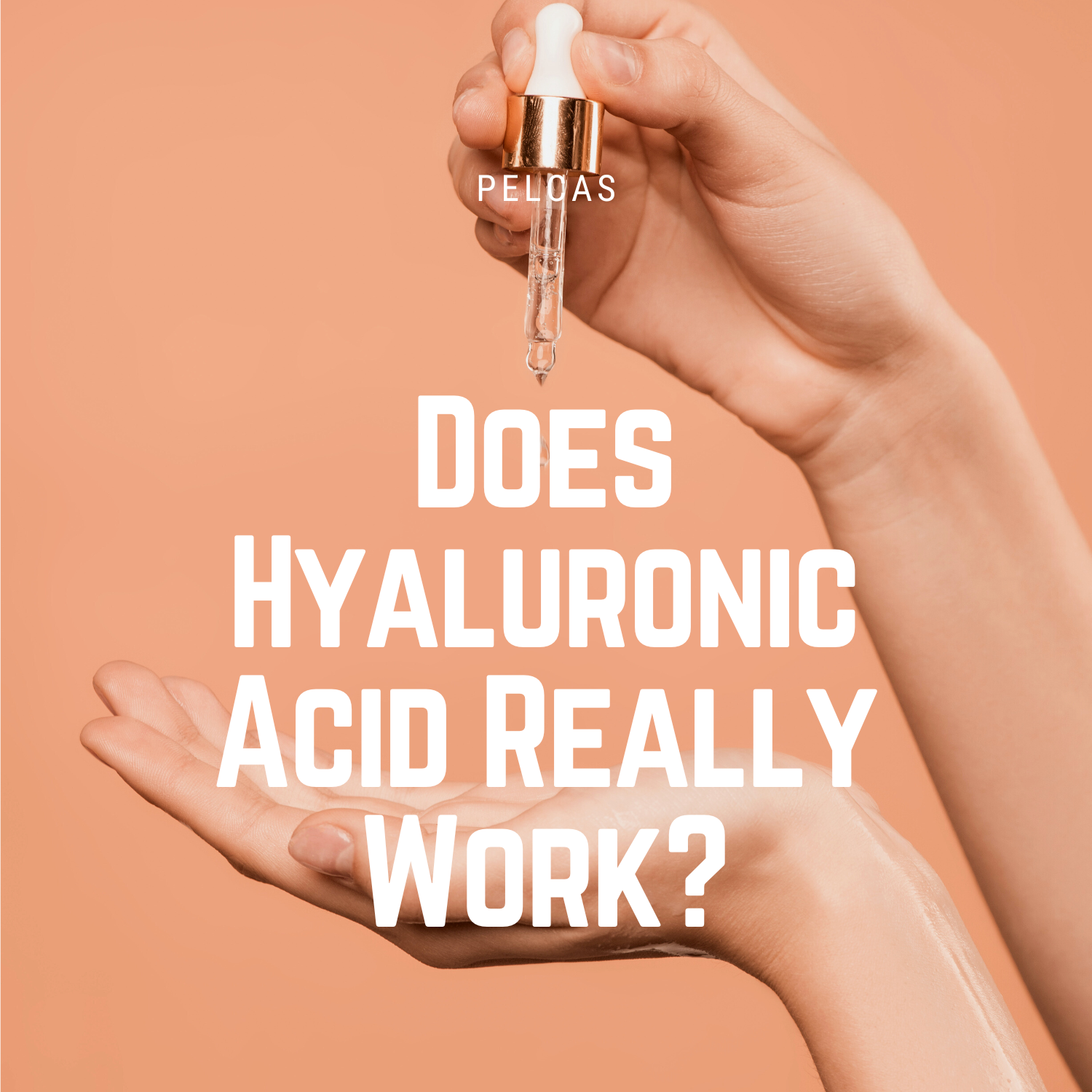Does Hyaluronic Acid Really Work?

In recent years, the skincare industry has witnessed a surge in the popularity of various ingredients promising miraculous results. Among these, hyaluronic acid has emerged as a star player, claiming to be a potent solution for achieving hydrated, youthful, and plump skin. But does this popular skincare ingredient live up to its hype? In this blog, we'll delve into the science behind hyaluronic acid and explore whether it truly lives up to its reputation.
Understanding Hyaluronic Acid
Hyaluronic acid is a naturally occurring substance in the human body, primarily found in the skin, eyes, and connective tissues. Its key role is to retain moisture, keeping our tissues well-hydrated and lubricated. In fact, a single molecule of hyaluronic acid can hold up to 1000 times its weight in water, making it a vital component for maintaining skin hydration.
The Hydration Myth
One of the most touted benefits of hyaluronic acid is its ability to hydrate the skin. However, the truth behind this claim is more complex than it seems. When applied topically, hyaluronic acid can indeed attract and retain moisture from the environment, temporarily plumping up the skin and giving it a smoother appearance. This is why many people experience an instant improvement in skin texture after using hyaluronic acid-based products. However, the real challenge lies in keeping that moisture locked in for more extended periods.
Molecular Size Matters
The effectiveness of hyaluronic acid in skincare products is significantly influenced by its molecular size. High-molecular-weight hyaluronic acid tends to remain on the skin's surface, providing a temporary hydrating effect. On the other hand, low-molecular-weight hyaluronic acid can penetrate deeper into the skin, offering more long-term benefits by stimulating collagen production and improving skin elasticity.
Combining Hyaluronic Acid with Other Ingredients and Tools
For hyaluronic acid to work its magic, it often needs the support of other complementary ingredients and tools. For instance, pairing it with humectants like glycerin can enhance its hydrating abilities by drawing moisture from the atmosphere and locking it into the skin. Additionally, antioxidants and peptides can further boost the skin's health and vitality, amplifying the overall effectiveness of hyaluronic acid-based formulations. Skin care tools are another way to effectively use hyaluronic acid. Facial massager can penetrate hyaluronic acid into skin deeply through 45°C heat and vibration.
Suitability for Different Skin Types
One size does not fit all when it comes to skincare ingredients, and hyaluronic acid is no exception. While it is well-tolerated by most skin types, those with extremely dry or sensitive skin may need to exercise caution. In some cases, hyaluronic acid can draw moisture from deeper layers of the skin, leading to temporary dryness. However, this can often be mitigated by applying a moisturizer on top of hyaluronic acid products.
Conclusion
So, does hyaluronic acid really work? The answer is a resounding yes, but with a caveat. When used correctly and in the right formulations, hyaluronic acid can deliver excellent results, providing the skin with a youthful, hydrated, and plump appearance. However, it's essential to choose products with the appropriate molecular size and consider individual skin needs to maximize its benefits.






Comments